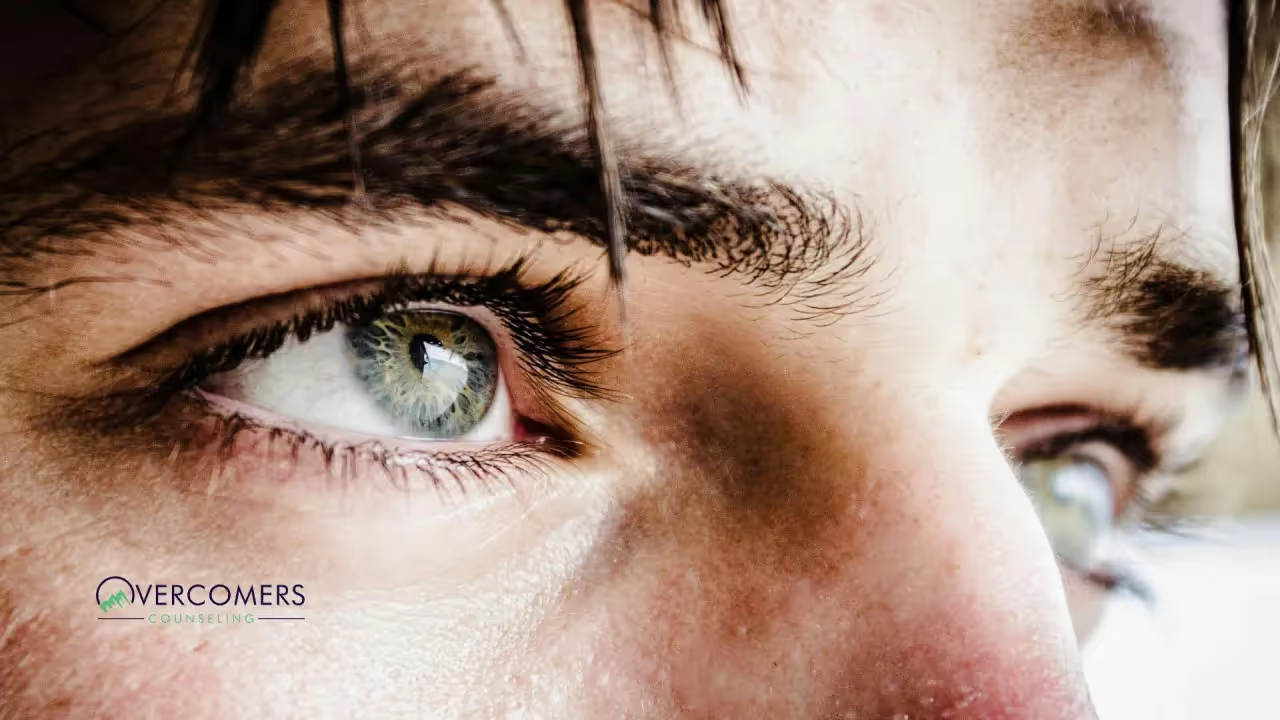Military service often comes with a unique set of mental health challenges, one of the most common being anxiety disorders.These conditions can manifest in...

Military service often comes with a unique set of mental health challenges, one of the most common being anxiety disorders.
These conditions can manifest in various ways such as excessive worry, restlessness, difficulty concentrating, and even physical symptoms like heart palpitations or trembling.
The impact on the well-being and daily life of veterans can be substantial, leading to social isolation, fatigue, and emotional numbness.
With a range of treatments available, from psychotherapy to lifestyle changes, regaining control over one's life is entirely feasible.
This article will show 9 notable symptoms of military anxiety and the corresponding treatments, providing a comprehensive guide for those seeking to understand and manage this condition.
Difficulty concentrating is a common symptom of anxiety experienced by military personnel.
It involves struggling to focus on tasks, whether they're routine duties or complex operations.
This symptom can be particularly challenging because it affects the individual's performance and productivity, which are crucial in a military environment.
Anxiety can cause the mind to constantly race with intrusive thoughts or worries, making it hard to maintain attention to the task at hand.
This can lead to mistakes, missed details, and reduced efficiency.
Disturbed sleep patterns manifest themselves as insomnia, frequent night awakenings, nightmares, or even sleep paralysis.
Anxiety often leads to a heightened state of arousal, which makes it difficult to relax and fall asleep.
The mind may continue to dwell on worries and fears even during sleep, leading to restless and unrefreshing sleep.
Such disturbed sleep patterns can exacerbate other symptoms of anxiety, like fatigue, irritability, and difficulty concentrating, and can severely impact an individual's overall well-being and performance.
Irritability is a common symptom of anxiety, particularly among military personnel.
It involves a reduced tolerance for stress or frustration, leading to frequent feelings of annoyance or anger.
Individuals suffering from anxiety may find themselves easily upset by situations that they would typically handle with ease.
This heightened state of irritability can strain interpersonal relationships, both in the military setting and in personal life.
It can also interfere with the individual's ability to perform their duties effectively.
Symptoms of restlessness typically manifest as a constant sense of unease, a feeling of being wound up, or an inability to sit still.
It's as if the individual is always waiting for something bad to happen.
This perpetual state of tension can be physically exhausting and mentally draining, making it difficult to focus on tasks or relax during downtime. It can also lead to impulsive or risky behaviors as the individual seeks ways to alleviate their restlessness.
Managing this symptom is critical in maintaining the individual's mental health and ensuring effective performance in their duties.
Physical symptoms such as headaches, stomachaches, and fatigue are often overlooked indicators of anxiety in military personnel.
Anxiety doesn't just affect the mind; it can also manifest physically.
Individuals may experience frequent or persistent headaches, stomach discomfort, muscle tension, or overwhelming fatigue, even when they've had adequate rest.
These physical symptoms can be disruptive, affecting their daily routines and performance.
They can contribute to a vicious cycle where the physical discomfort heightens the anxiety, which in turn exacerbates the physical symptoms.
Avoidance Behavior involves steering clear of situations or stimuli that trigger feelings of fear or discomfort.
For instance, an individual might avoid certain tasks, places, or people they associate with stressful experiences.
While avoidance can provide temporary relief from anxiety, it is a short-term solution that often exacerbates the problem in the long run.
By avoiding the source of anxiety, the individual misses opportunities to confront and manage their fears. Over time, this can limit their activities and interactions, leading to social isolation or impaired performance in their duties.
Flashbacks or nightmares are significant symptoms often associated with Post-Traumatic Stress Disorder (PTSD), which is common among armed forces members.
Flashbacks involve reliving traumatic events as though they're happening in the present, while nightmares can bring up distressing images from past experiences during sleep.
These symptoms can be incredibly disruptive, leading to a lack of restful sleep and heightened anxiety during waking hours.
They can also trigger avoidance behaviors, as individuals may start to avoid situations that remind them of the traumatic event.

Constant worry or fear is a pervasive symptom often associated with anxiety disorders, including Generalized Anxiety Disorder (GAD).
Individuals experiencing this symptom may find themselves in a state of perpetual unease, anticipating the worst possible outcome even in non-threatening situations.
This chronic worry can extend to various aspects of life, such as health, work, relationships, or everyday routines.
Constant fear can trigger physical symptoms like headaches, fatigue, or trouble sleeping. It can also create a vicious cycle where the fear of anxiety itself exacerbates the condition.
Panic attacks, a severe form of anxiety, are characterized by abrupt and intense fear that can provoke significant physical responses, even in the absence of any real threat or identifiable reason.
This phenomenon can be particularly prevalent among members of the military who may have experienced traumatic events.
Symptoms of panic attacks include a rapid, pounding heart rate, sweating, trembling or shaking, and a sense of impending doom or danger.
In some cases, these attacks might be so intense they feel akin to a heart attack.
The fear of having more panic attacks can lead to avoidance behaviors, further complicating the individual's daily life.
Therapy is a widely used treatment for military anxiety, which includes cognitive-behavioral therapy and exposure therapy.
These therapies help individuals understand and change thought patterns leading to anxiety and fear.
Medications, such as antidepressants and anti-anxiety drugs, can also be prescribed by healthcare professionals to manage symptoms.
In addition, lifestyle changes like regular exercise, maintaining a healthy diet and ensuring adequate sleep can contribute significantly to managing and reducing anxiety levels.
Alternative treatments like meditation, yoga, and acupuncture have also shown promise in easing anxiety symptoms.
These holistic approaches can be used in conjunction with traditional therapies to combat anxiety effectively.
Speaking to a therapist is of paramount importance when dealing with military anxiety symptoms.
Therapists offer a safe and confidential environment for service members to express their feelings and confront the anxieties tied to their experiences.
They use evidence-based techniques, like cognitive-behavioral therapy or exposure therapy, to help manage symptoms and reduce the impact of anxiety on daily life.
By creating an individualized treatment plan, therapists can address the unique experiences and challenges faced by each individual.
This might include dealing with traumatic memories, fear of panic attacks, or stress related to transitioning back to civilian life.
Furthermore, therapy can equip military professionals with long-term coping strategies, offering tools to build resilience and improve overall mental health.
Therefore, seeking therapeutic help can be a crucial step in the journey towards recovery from military anxiety.
Identifying and managing military anxiety symptoms is an essential step toward enhancing mental health and overall quality of life.
The experiences tied to military service can lead to significant anxiety, impacting daily life and long-term health.
However, with a range of treatment options available, including therapy, medication, lifestyle changes, and alternative treatments, it's entirely possible to manage these symptoms effectively.
It's crucial for anyone struggling with military anxiety to know they are not alone and that help is available.
Seeking professional support is a sign of strength, not weakness.
By connecting with mental health experts, loved ones, or support networks, individuals can embark on their path to recovery and reclaim their life's control.
Ignoring anxiety can exacerbate symptoms and make it more challenging to manage over time. This can result in a negative impact on your personal, professional, and social life, leading to feelings of isolation and even depression.
Yes, Medicaid provides insurance coverage for therapy services specifically designed to help individuals struggling with anxiety, depression, and other mental health conditions.
To reduce your anxiety, you can practice relaxation techniques such as deep breathing, progressive muscle relaxation, guided imagery, and mindfulness practices. Additionally, regular exercise has been found to be beneficial in managing stress and improving mental health.
Other activities which have been found helpful in reducing both immediate feelings of anxiousness and long-term anxieties associated with chronic disorders include yoga, journaling, nature walks, art therapy, volunteering, and other low-stress activities. Additionally, developing a healthy lifestyle incorporating adequate sleep, physical activity, and nutritious meals can help reduce overall stress levels.
The duration of anxiety counseling varies for each individual, depending on the severity of their anxiety and their progress in therapy. Our therapists will regularly assess your progress and adjust your treatment plan as needed.
Addressing anxiety is crucial because it can significantly impact your quality of life and overall well-being. Left untreated, anxiety can lead to more severe mental health issues, relationship problems, and difficulty functioning in daily life.